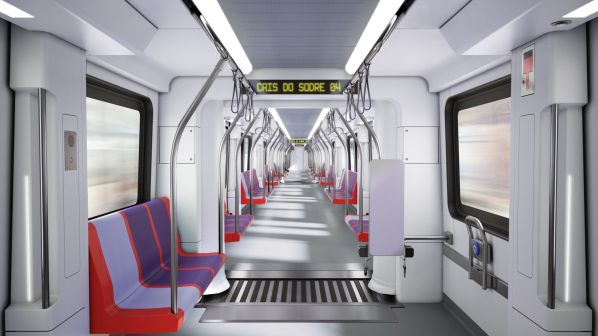PORTUGAL’s Court of Auditors has given prior approval for a €114.5m contract for new trains and CBTC awarded by Lisbon Metro to a consortium of Stadler and Siemens Mobility in January 2020, allowing the contract to come into force.
Under the contract, Stadler will supply 14 three-car metro trains, while Siemens will install its Trainguard CBTC system on the Blue, Yellow and Green lines as well as installing onboard CBTC on 70 trains in the existing fleet and the 14 new Stadler trains.
According to local media reports at the time, the contract was awarded before knowing the outcome of a judicial challenge filed by Thales and CRRC Tangshan.
Stadler will design the vehicles using a modular methodology to better facilitate maintenance. The trains will comprise lightweight stainless-steel car bodies and will have three double doors per side to enable passengers to board and alight quickly and easily.
The 14 three-car trains will initially be fitted with CBTC at GoA2 but will have the ability to be upgraded to GoA4, to allow the service to be fully automated in future. Trains will be powered by third rail electrification at 750V dc.
The 49.6m-long, 2.78m-wide vehicles will have 90 seats arranged longitudinally, two places for wheelchair users, and standing capacity for 450 people at six people per m2. The new rolling stock will increase comfort and accessibility for passengers, as well as provide enhanced communications, safety, and CCTV systems.
The contract also includes the implementation of Automatic Train Protection (ATP), Automatic Train Operation (ATO) and Automatic Train Supervision (ATS) on the Blue, Yellow and Green lines of Lisbon’s four-line metro network.
In addition, the contractor will provide technical training for operation and maintenance, as well as preventive and corrective maintenance of all equipment for the first three years, and the supply of spares and consumables for preventive maintenance for a further two years.
The first three-car train will be delivered in the first quarter of 2023, while the final train is due to be delivered in the third quarter of 2025.
For detailed data on fleet orders from around the world, subscribe to IRJ Pro.

